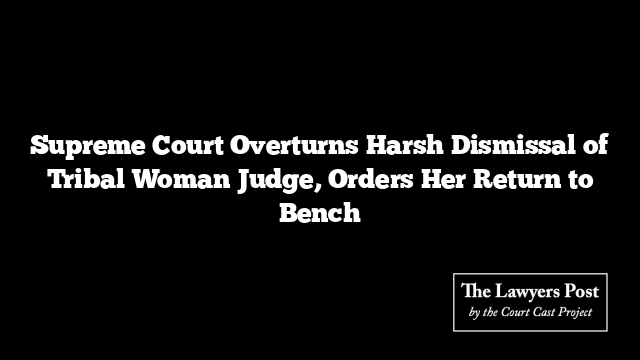In a powerful ruling, the Supreme Court breathed new life into the career of Pinky Meena, a Scheduled Tribe woman who had been ousted as a civil judge by the Rajasthan High Court over charges deemed by the apex court as “disproportionate and unfair.”
Meena, appointed to the Rajasthan Judicial Service in 2018, faced removal during her probation in 2020 on the grounds that she hadn’t disclosed her previous role as a government teacher and had pursued a postgraduate law degree without a no-objection certificate. But the Supreme Court dug deeper — and found the entire disciplinary action unjustified.
The bench, led by Justices BV Nagarathna and Satish Chandra Sharma, emphasized that Meena had resigned from her teaching post before even sitting for the judicial interview, making the non-disclosure far from a serious lapse. They also accepted that the rules didn’t require her to seek permission for further studies since she had already quit her prior government job.
More than just a technicality, the Court highlighted the procedural flaws behind her dismissal. Meena was never given a fair chance to defend herself—the inquiry process lacked transparency and violated basic principles of natural justice. Instead of a measured approach, the High Court’s action amounted to what the Supreme Court called a “capital punishment for a minor omission.”
Beyond the legalities, the ruling spotlighted a broader social dimension: Meena’s journey as a tribal woman navigating systemic hurdles to enter the judiciary. Her perseverance, the Court noted, adds crucial diversity and strength to the judicial system.
Ultimately, the Supreme Court quashed her discharge, ordered her reinstatement with seniority and other benefits intact (though without back wages), and confirmed her status as a full-fledged judge.
This judgment sends a resounding message — safeguarding rights isn’t just about rules, but fairness, inclusion, and recognizing the struggles of those breaking barriers in public service.





